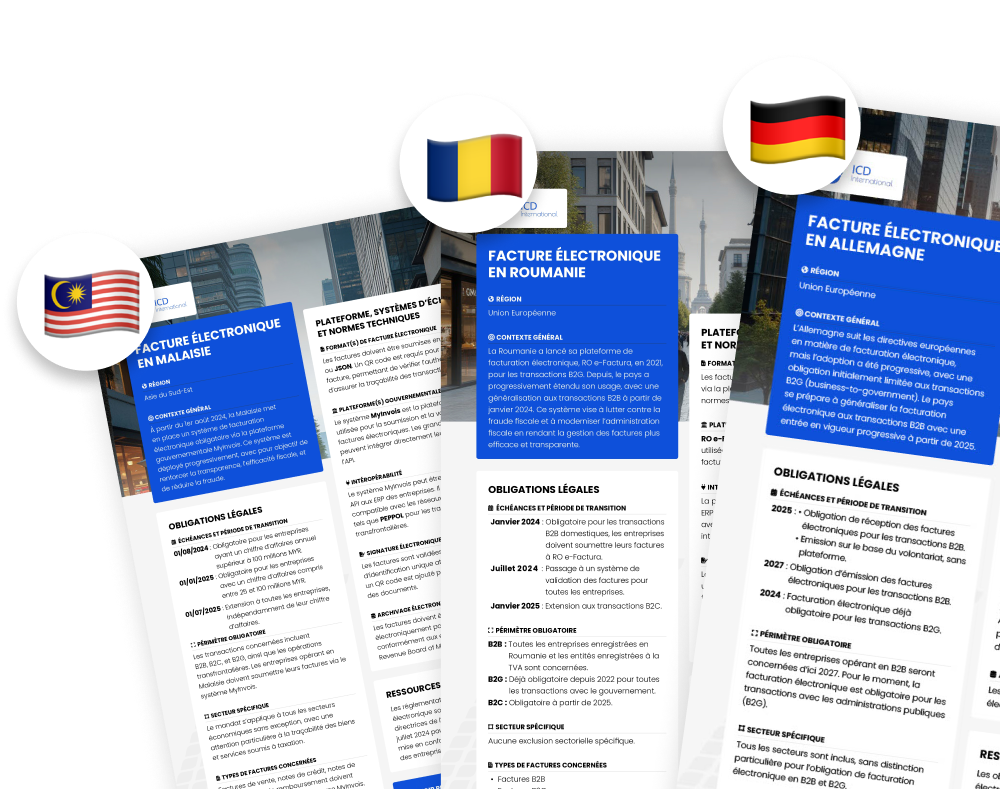Invoice projects Digitalization and the transition to mandatory invoice electronic invoicing, companies are undergoing far-reaching changes to their processes and information systems.
To ensure the success of your projects, a preliminary audit is essential to ensure that they are properly framed and run smoothly.
Here's the diary of an audit we recently carried out for one of our customers. Go behind the scenes with our project manager's report.
PS: For reasons of confidentiality, the names of the actors and organizations involved have been removed.
Sept. 20, 9:30 a.m. - Kick Off
We launched the audit today, bringing together all the stakeholders who will be involved throughout the project (business experts, technical referents, project or demat managers, impacted service providers etc.). invoice or demat managers, impacted service providers etc.). )
- The in-house project manager overseeing the switch to invoice electronics. She is also responsible for accounting.
- The Accounts Receivable Manager, who is also involved in the Digitalization invoicing project, and the ERP referent.
- The ERP project manager
- Internal IT and architecture project managers within the IT department
A round-table discussion enabled introductions to be made and everyone's roles in the organization and for this audit to be identified.
This kick-off is also an opportunity to reiterate the key elements of the reform, so that everyone has the same level of information and knowledge of the challenges and expectations of this audit. It has already revealed some specificities, and the first points for vigilance or reflection have emerged as a result.
Finally, we defined exactly what we wanted the audit to achieve:
- Preparing for future tax obligations Digitalization
- Improve and optimize customer invoicing and supplier invoice accounting processes.
On this basis, we determine all the workshops (functional and technical) to be carried out, their objectives and the participants required for each workshop.
We leave this first kick-off meeting with a clear roadmap, all stakeholders aligned on the expectations and challenges of the audit, and a clear view of everyone's responsibilities and the timing of the audit.
Sept. 27, 28 and 29 2:00 pm - Trade workshops
Over 3 days, the aim of these workshops and interviews is to cover the full range of business cases that can be encountered in a company, as well as the invoice processing flows and processes in place.
Each workshop provided a detailed description of outgoing and incoming flows, as well as their links with the relevant IS(ERP, management of specific flows, invoicing and accounting tools, etc.).
For each type of flow, we examined :
- the volume of invoices to be processed,
- number and type of companies involved (SMEs or large groups, local or international...)
- repository quality (completeness and reliability of data, etc.)
- players likely to be involved in the flow (buyers, suppliers, etc.),
- applications used...
- types of data formats used...
We collected all the information needed to map out the overall process and existing flows.
We also analyzed disputes, anomalies and average processing times.
We identified all the "invoice" business processes and understood their specific features and precise operation. We have identified the special cases specific to the organization that require particular attention to meet future legal obligations, and some potential areas for optimization.
Among the special cases, a long-standing B2C flow (15 years of existence) representing less than 1% of the overall volume of invoice flows, which needs to be completely overhauled to fit within the framework of the reform: processes, tools, connection ERP and data segmentations.
October 10 - 9:00 am - Restitution of the functional audit
This interim report leads us to our initial conclusions about the company's current operations and processes.
We confirmed our understanding of business processes, existing invoice flows and special cases impacted by the reform (self-billing, subscription invoices, billing mandates, etc.).
We have mentioned other points to watch out for, including :
- maturity gaps with regard to Digitalization certain phases of the business process.
- Litigation management in certain phases of the process probably needs to be reviewed and steered differently in anticipation of future transformations.
Nov. 16, 9 a.m. - Technical workshops
These workshops and interviews enabled us to gain a precise understanding of thetechnical environment in which the Digitalization invoicing system will have to be deployed.
We mapped the systems and all existing connection points.
For each IS concerned, we collected the following data:
- a precise description of the IS organization in place,
- network and security protocols,
- business-specific tools, modules and satellites
- processed data and formats.
We have all the information we need to define the target architecture for the Digitalization invoice chain.
We also set out a typical IS project within the organization, in which the dematerialization solution would be deployed.
Nov. 25 10:00 a.m. - Restitution complete
We presented the results of the two workshop phases, our conclusions and our recommendations to all the teams involved throughout the audit:
- the target layout for receiving and issuing electronic invoices under the reform,
- flows to be considered within and outside the scope of the reform,
- the new flows to be set up and the data to be processed,
- the timetable for testing and deploying the system,
- the functionalities required to cover the organization's target invoice scheme Digitalization ,
- the solutions and scenarios to be envisaged to meet the specifications,
- the transformations to be carried out (trades, organizations, techniques) and the projects to be carried out (stakeholders and duration)
With this audit report, in-house teams have a complete view of the areas to be followed and the scope to be deployed in order to be compliant and operational during the transition to invoice electronic.
The summary provided helps you benchmark and choose the solution to be implemented, as well as recommending the support to be provided.
Would you like to launch an audit to prepare your company's transition to invoice in the best possible conditions? Discover our offer.




